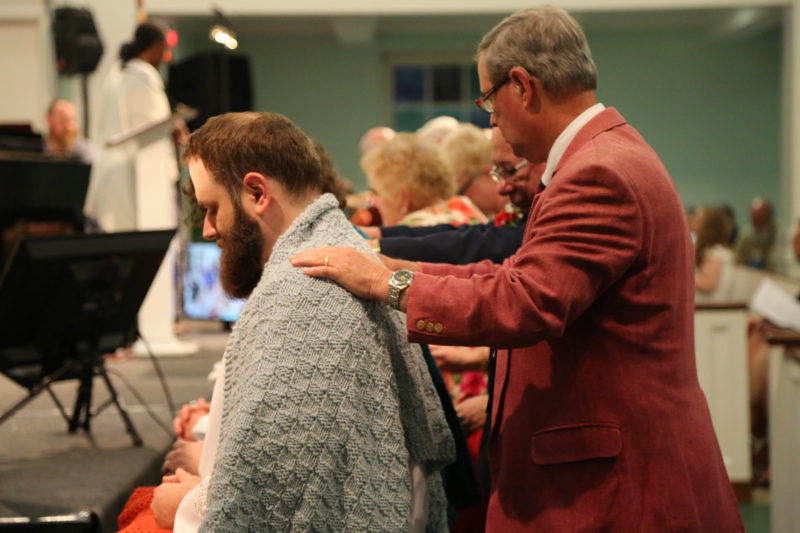If you are exploring a call to ministry, we want to help. Your pastor, campus minister, or district superintendent can help you know what steps you might want take to understand how you can serve in ministry within the United Methodist Church. The West Virginia Conference Board of Ordained Ministry (BOOM) helps guide people called to ministry on their path to becoming licensed and ordained ministers of the United Methodist Church.
Here are some basic descriptions of licensed and ordained ministry options:
A licensed local pastor answers God’s call by serving a local congregation or extension ministry. After completing certified candidacy and licensing school, the local pastor serves by virtue of a license for pastoral ministry. Local pastors are clergy members of the annual conference, whose license is contingent upon appointment. Their education occurs through the Course of Study.
Associate membership is available to licensed local pastors when they have completed educational requirements, have completed four years of full-time service (¶322 Book of Disciple), and have been elected by the clergy session of annual conference. Associate members are in the itinerant ministry of the church and are available on a continuing basis for appointment by the bishop.
Ordination is a lifetime covenantal relationship that includes mutual care and accountability. Deacons are ordained clergy who lead the people of God through ministries of Word, Service, Compassion, and Justice. Some deacons serve congregations in ministries of Christian education, music, outreach, administration, or pastoral care. Some deacons serve outside the church in such ministries as social-service organizations, schools, legal services, or as chaplains. Elders lead and serve the Church in the ministries of Word, Sacrament, Order, and Service. Elders’ primary responsibilities are communicating the faith and proclaiming God’s Word through preaching and teaching. Elders administer the sacraments of baptism and Holy Communion and order the Church’s ministry. Most elders serve as pastors in charge of local congregations. However, elders may also serve in a variety of extension ministry settings (such as chaplaincy or pastoral counseling).
Apart from serving God in the local church, ordained or licensed clergy may also be appointed to ministries in specialized settings which extend Christ’s love and justice into the world. These settings are usually institutions with the primary purpose of education, international security, peacekeeping, incarceration, or healthcare in nonprofit and for profit agencies. To serve in these settings, clergy are expected to have ecclesiastical endorsement. Endorsement is the Church’s process to ensure clergy possess the skills and capabilities needed for a particular setting, and that they are appropriate representatives of the denomination. The Church then endorses those who they affirm to serve in specific ministerial settings.

Retiring clergy pray for those who are about to be commissioned and ordained.
Seminary Education Resources:
Ministerial Education Fund Guidelines
Basic Graduate Theological Studies Scholarship application
Seminary Course Requirement Checklist-WV Conference
Residency Program
Course of Study Resources:
Course of Study course descriptions
For part-time, licensed local pastors, WV extension school at Spring Heights
Additional Clergy Resources:
Continuing Formation Funds WVUMC (fillable PDF)
Pastoral Evaluation (fillable PDF)
Policies:
Sexual Ethics Policy